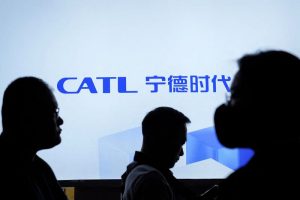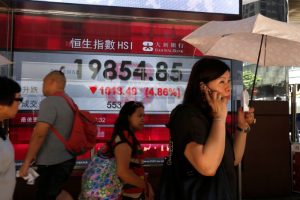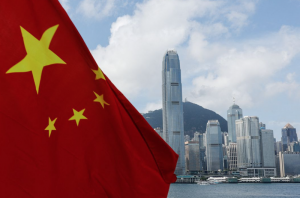The threat of delisting Chinese stocks from major US exchanges could prove to be a bonanza for the Hong Kong Stock Exchange, which has endured a tough start to the year.
More Chinese companies are expected to follow the lead of Alibaba, which announced on Tuesday that it would upgrade its secondary listing in Hong Kong to a dual primary listing.
That move would make it easier for investors on the mainland to buy shares in the e-commerce giant via Hong Kong’s Stock Connect link.
Analysts say Hong Kong is likely to see billions of dollars flowing in from the mainland as more Chinese companies upgrade their listings in the city to tap into a bigger pool of capital amid the looming threat of delistings in the US.
The move is likely to prompt other major firms such as JD.Com, Netease and Baidu to consider upgrading to dual primary listings, said Periscope Analytics founder Brian Freitas, who publishes on Smartkarma.
The main advantage for the companies upgrading their listings in Hong Kong to dual primary is that they can apply to be included in Stock Connect, a link to the city’s bourse which allows mainland Chinese investors to buy stocks more easily.
ALSO SEE: US Regulator’s Hard Line on China Stocks: No Audit, No Listing
More Firms Tipped to Follow
Chinese e-commerce firm Dingdong Ltd has started preparations on its dual primary listing in Hong Kong with its advisers, three people with direct knowledge of the matter said.
Dingdong aims to launch the deal as soon as the fourth quarter, one of the sources said. The company backed by SoftBank, is seeking a Hong Kong primary listing only a year after it raised $95.7 million in an US IPO.
All the sources declined to be identified, as they were not authorised to speak to the media.
Dingdong, JD.Com and Netease did not immediately respond to a request for comment. Baidu declined to comment.
“It could be a good example when you have the giant [Alibaba] converting from a secondary listing to a dual primary for others to follow suit,” said Stephanie Tang, a partner at law firm Hogan Lovells.
“Those companies keep their existing primary listing, they have another avenue to access capital, it gives them more choices and opportunities to diversify their investor base.”
Alibaba Link ‘Could Yield $21bn’
Allowing Alibaba into Stock Connect could see $21 billion inflows in its Hong Kong listed shares, Bernstein analysts estimated, if its total ownership from mainland investors reached 7% to 10% in line with some of its large cap rivals.
Goldman Sachs said in a report southbound buying could reach almost $30 billion if Alibaba and 14 other secondary listed companies in Hong Kong converted to a dual primary listing.
The inflows would provide a welcome boost to the Hong Kong market. The Hang Seng Index has fallen 12% and the Hang Seng Tech Index has sunk 19% so far this year.
Among other Chinese firms considering similar moves, video platform Bilibili said in a May statement that it had applied for a Hong Kong dual primary listing and hoped to have the deal finalised on October 3.
Increased numbers of dual primary listings is unlikely to deliver capital markets investment bankers a windfall, though, with most of the prospective candidates not needing to issue new shares.
Listing upgrades will also help the companies prepare for delisting if the standoff between Beijing and Washington, which is threatening to kick out hundreds of Chinese companies listed in New York, over auditing access is not resolved.
“Although, the dialogue between the Chinese and US regulators is still underway, the delisting risk is looming large given the overall geopolitical tension, the prolonged negotiation process and the fast approaching deadline,” Davis Polk partner Li He said.
“Against this backdrop, more US listed Chinese issuers are expected to pursue dual primary listings.”
- Reuters with additional editing by Jim Pollard
ALSO on AF:
China Denies Data Ranking Plan to Avoid US Delistings
Didi Shareholders Vote to Delist from New York Stock Exchange
US Regulators Seen in China For Talks on Delisting Dispute
























